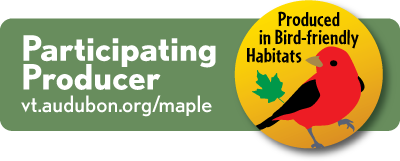White-throated Sparrow
Latin: Zonotrichia albicollis
The Green Mountain Audubon Center Photo: Meghan Hall/Audubon Vermont
It's always a good time to visit the Audubon Center. Trails are open to the public year-round. Visit us daily from dawn until dusk! Donations are appreciated.
Audubon Vermont is a state program of the National Audubon Society. We are a nonprofit conservation organization whose mission is to protect birds and the places they need, today and tomorrow.
Help secure a future for birds at risk from climate change, habitat loss and other threats. Your support will power our science, education, advocacy and on-the-ground conservation efforts.
From bird watching to winter tracking, maple sugaring to pond scooping, our goal remains the same: to connect people with nature.
Hands-on, outdoor, science learning experiences. We hope you and your students will join us for a uniquely Audubon experience this year!
Engaging young adults in conservation, education and policy
Calling all explorers, investigators, and lovers of nature - sign your child up and they will discover our 255 acres of wild and fun!
Technical assistance for Vermont landowners interested in stewarding their forests for diverse bird habitat
Linking farmers and birders together to support bird-friendly agricultural practices
Vermont Common Terns make a comeback

Help secure a future for birds at risk from climate change, habitat loss and other threats. Your support will power our science, education, advocacy and on-the-ground conservation efforts.
It's always a good time to visit the Audubon Center. Trails are open to the public year-round. Visit us daily from dawn until dusk! Donations are appreciated.
Adults, preschoolers, foresters, photographers, sugarmakers and families will all find opportunities to connect with nature.